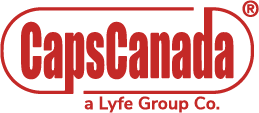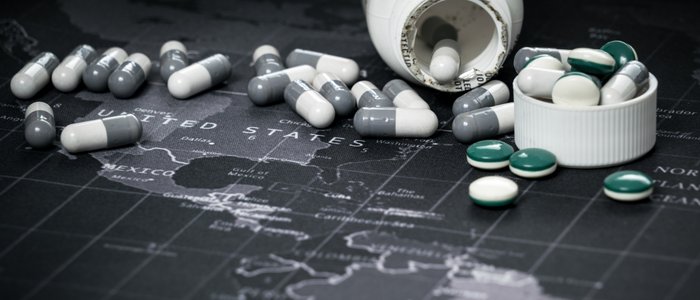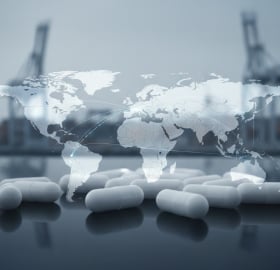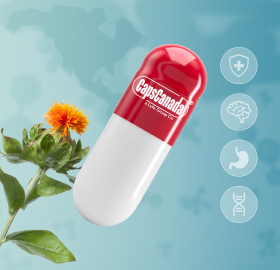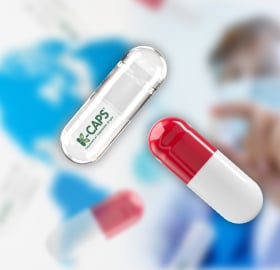What would happen to our nation’s healthcare system if our supply of common and often life-saving medications dried up? If everything from ibuprofen and anesthesia to antibiotics and cancer treatments suddenly became unavailable?
As frightening as this question is, we hope we never have to experience the answer. However, unless steps are taken to onshore the manufacturing of pharmaceutical drugs and their active ingredients, losing access to drugs that millions of U.S. citizens need is a very real possibility.
That said, even if things never get as dire as a complete cut-off of needed medications, the risks posed by relying on overseas supply chains can jeopardize your company’s long-term health and survival.
How many of the following risks are already on your radar? What are your plans to address these risks?
Risk #1: Overseas production of APIs
Until the mid-1990s, the U.S., Europe and Japan produced 90% of the world’s active pharmaceutical ingredients (APIs). Today, China has over 40% of worldwide API market share, and the U.S. relies on China and India for 75 to 80% of its supply of APIs.
What about the non-active ingredients that are mixed with the APIs to produce the final drug? The U.S. imports the vast majority of many common and essential medications from China.
Overwhelming U.S. reliance on other countries to supply critical pharmaceutical products presents a significant national security risk. In 2020, protectionism and geopolitics disrupted pharmaceutical supply chains in unprecedented ways. For example, when the COVID-19 pandemic first hit, India restricted the export of many common medicines and APIs in order to ensure its domestic supply. Although a great deal of pharmaceutical manufacturing takes place in India, it relies on China for many raw ingredients.
In addition, border tensions between China and India caused delays in the movement of key chemicals used to make many vital medications, including diabetes drugs—and the ensuing shortages were felt around the world.
Risk #2: China’s rising COVID-19 numbers
Now that China has ended its “COVID Zero” policy, the Chinese supply chain disruptions may be shifting from “the factory is closed because the city is on lockdown” to “the factory is closed because the workers are all ill.”
Even local manufacturing is vulnerable to high prices and delays, because the supply chain which that local manufacturing relies on can be disrupted.
Risk #3: The fragility of the capsule supply chain
At the beginning of the COVID-19 pandemic, many pharmaceutical manufacturers were shocked to discover that there were problems in their capsule supply chain. The pandemic caused shortages of gelatin and, in turn, gelatin capsules. Many companies found that their existing capsule supplier—which was most likely sourcing capsule ingredients and/or producing the capsules overseas—suddenly could not offer a reliable capsule supply.
This meant that even if they could obtain necessary active and inactive ingredients, many pharma companies struggled to get the capsules they needed to make their finished products! Of course, simply switching to a different medication delivery vehicle (such as vegetarian capsules) is not always possible at scale or on a short timeline.
During this time CapsCanada heard from many buyers who were very relieved to learn that CapsCanada could meet their capsule demand. Unlike other capsule makers, CapsCanada does not source any of our raw materials from China. Not only do we do all of our manufacturing in this hemisphere, we are also the only capsule manufacturer that owns—and therefore controls—its entire gelatin supply chain.
Risk #4: Global politics
In March 2019, Li Daokui, Professor of Economics at Tsinghua University, pointed out, at China’s annual National Congress, that the country is “the world’s largest exporter of raw materials for vitamins and antibiotics. Should we reduce the exports, the medical systems of some Western countries will not run well.”
A few years ago, the disruptions caused by Russia’s invasion of Ukraine were not on very many executives’ analysis of potential supply chain threats. But that rather-unexpected situation is now ongoing today. The point is, unthinkable things do happen. Given the ongoing U.S.-China tensions, we need to recognize that critical aspects of the pharma supply chain can be “weaponized” and held hostage.
Risk #5: Quality and environmental issues
Product quality and safety and the environmental impact of harmful manufacturing practices are also significant concerns regarding U.S. reliance on overseas pharmaceutical suppliers. Although many instances of contaminated drugs produced overseas have been documented, the U.S. Food and Drug Administration has no way to adequately inspect foreign manufacturing facilities.
Counterfeit, substandard, mislabeled or falsified generic drugs from China, India and other countries—a result of lax oversight and low levels of regulatory enforcement— dangerously capitalize on Western desire for less expensive medicines, and consumers who take them risk harm.
Environmental concerns pose another threat. The U.S. maintains strict regulations to ensure that pharmaceutical waste products are not simply discharged into the environment. This is not the case in China and India, where pollution from antibiotics manufacturing reportedly is helping to increase antimicrobial drug resistance.
The solution: Nearshoring
We believe that this problem is a vital national security issue as well as a potential existential threat to many players in the pharmaceutical industry.
The best solution is to deglobalize the production of APIs and pharmaceuticals, and nearshore pharma operations and supply chains. As a North America-based company, CapsCanada is doing our part to make this happen.
Since 1984 CapsCanada has been reliably providing both pharmaceutical and nutraceutical companies with the empty capsules they need. We were there for our customers when they needed us at the height of the pandemic when empty capsules became difficult to source, and we will continue to be their reliable partner in the future.

